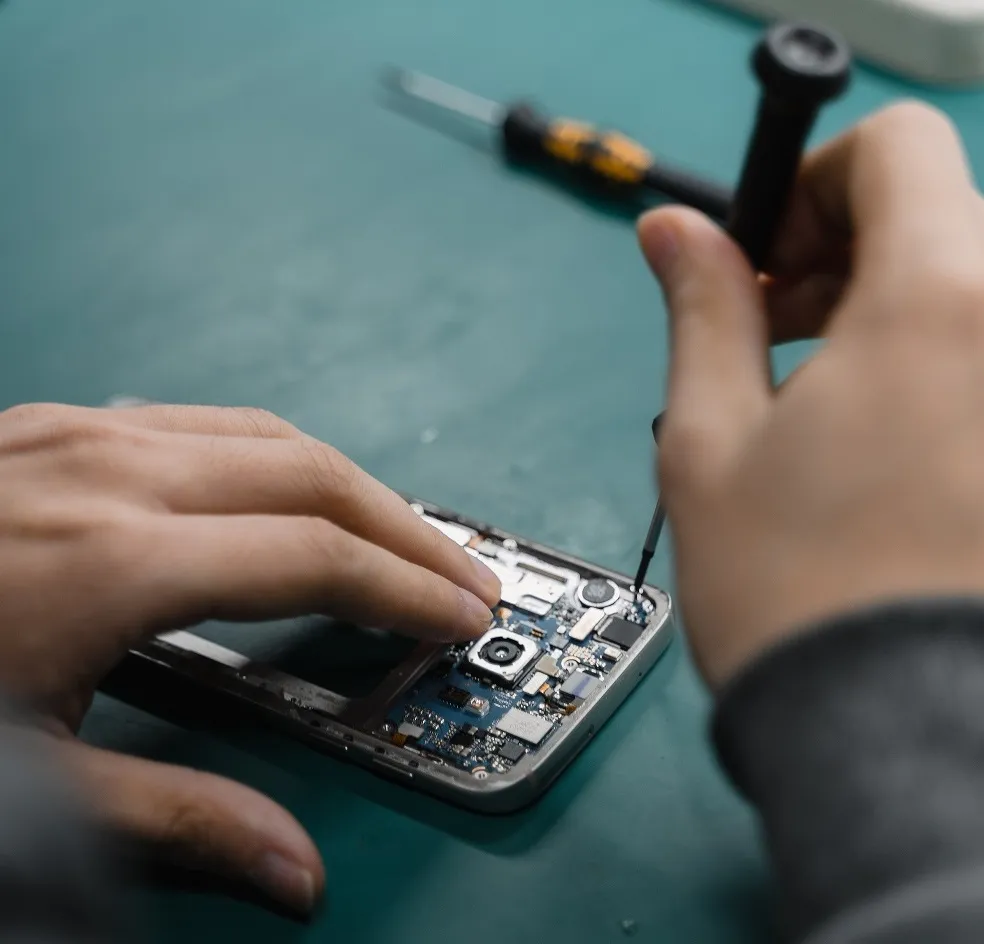Ensuring a Sustainable and Responsible Smartphone Industry
Smartphones have become an essential part of our daily lives, and as a result, the demand for them is increasing rapidly. However, the production and disposal of smartphones also have significant environmental and social impacts. To address these issues, the smartphone industry must prioritize reparability in its products. In this article, we will discuss the importance of phone reparability policies and scores, their historical references, future trends, the competitive advantage for phone manufacturers that are focusing on reparability, and the importance of end users educating themselves in such matters.
Historical References
The concept of planned obsolescence has been a prevalent practice in the tech industry for decades. The practice was first identified in the 1950s when companies began designing products with a limited lifespan to encourage consumers to buy new products. The practice of planned obsolescence became more widespread in the 1990s with the introduction of electronic devices such as mobile phones and personal computers. These devices were designed to become obsolete quickly, forcing consumers to buy new devices regularly.
In 2017, the French government was one of the pioneers in the subject when it introduced a new law that required manufacturers to disclose the reparability score of their products. The reparability score provides consumers with information on how easy or difficult it is to repair a product. The policy aimed to improve the longevity and sustainability of products by encouraging manufacturers to design products that are easier to repair.
Today, the right-to-repair movement has gained momentum, with consumers demanding legal protection of the right to repair their electronic devices. Many companies are starting to take notice of this movement and are designing products that are easier to repair and include repairability scores and policies. However, there is still a long way to go before repairability is a standard feature in all electronic devices.
Future Trends
The trend toward repairability is likely to continue in the future. Consumers are becoming more aware of the environmental and social impacts of their purchases and are demanding products that are designed to last longer and can be repaired easily. Governments are also starting to take notice of the issue, and more countries are likely to introduce laws that require manufacturers to prioritize repairability in their products.
Another future trend is the growth of the circular economy. The circular economy is an economic system that aims to eliminate waste by keeping products and materials in use for as long as possible. In a circular economy, products are designed to be repaired, reused, and recycled. The growth of the circular economy is likely to drive the demand for products that are designed to be repaired and reused.
The Competitive Advantage for Phone Manufacturers
The competitive advantage of phone manufacturers that prioritize repairability cannot be overstated. By designing devices with replaceable components, manufacturers can save significant costs associated with manufacturing entirely new devices when a single component fails. This means that the manufacturer can reduce their production costs while also contributing to sustainability efforts.
Moreover, by offering repairable devices, manufacturers can appeal to a growing consumer demographic that values sustainability and the ability to repair and maintain their devices. This demographic is increasingly influential in shaping the market and industry practices and is expected to become even more so in the coming years.
Furthermore, consumers are becoming more aware of the environmental impact of their purchasing decisions. By offering repairable devices, manufacturers can demonstrate their commitment to sustainability and gain a competitive edge over other manufacturers that do not prioritize repairability.
In addition to the financial and environmental benefits, manufacturers that prioritize repairability can also improve their brand image and reputation. By showing that they care about the longevity and sustainability of their products, manufacturers can build trust with their customers and create a positive brand image. This can lead to increased customer loyalty and sales.
It’s clear that the competitive advantages of prioritizing repairability cannot be ignored. By designing devices with replaceable components, manufacturers can reduce production costs, appeal to a growing demographic of environmentally conscious consumers, and improve their brand image and reputation. As such, phone manufacturers that prioritize repairability will have a significant competitive advantage in the coming years.
The Importance of End Users to Educate Themselves
As an end user, it is crucial to understand the competitive advantages of prioritizing reparability when it comes to smartphones. By choosing devices that are easy to repair, you can benefit in several ways.
Firstly, repairable devices can save you money in the long run. If a single component fails, you can simply replace that component rather than having to buy a completely new device. This can help you avoid the high costs associated with purchasing a brand new phone. In addition, repairable devices can also have a longer lifespan, which means that you can get more use out of your device before needing to replace it.
Moreover, by choosing repairable devices, you can also contribute to sustainability efforts. Repairable devices help reduce electronic waste, which is a major contributor to environmental problems. By choosing devices that are easy to repair, you can reduce your own electronic waste footprint and support the movement towards a more sustainable tech industry.
Furthermore, by advocating for repairability policies and scores, you can help drive the market towards more repairable devices. By supporting organizations and campaigns that promote repairability policies and scores, you can send a clear message to manufacturers that you value repairability and sustainability. This can incentivize manufacturers to prioritize repairability in their product designs, leading to a future market shift towards more repairable devices.
Prioritizing repairability can benefit end users in several ways. Repairable devices can save you money, contribute to sustainability efforts, and help drive the market towards more repairable devices. As such, it is important for end users to educate themselves on phone reparability and to prioritize repairability in their purchasing decisions.
Our Shared Goal
It’s clear that phone policies and scores are essential for ensuring that smartphones are designed with reparability in mind. However, end users also have a role to play in promoting reparability by educating themselves on the topic and advocating for change. Phone manufacturers as the ones supported by The Good Phone Foundation and that prioritize reparability can reduce their manufacturing costs and gain a competitive advantage by appealing to consumers who are looking for sustainable and responsible products. By working together, we can create a more sustainable and responsible smartphone industry


